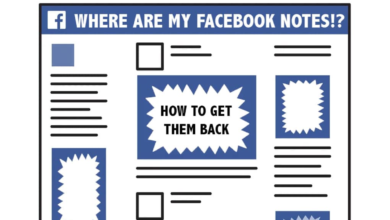The Underdog Revolution: How Small Businesses Are Winning Big
In an era dominated by corporate giants, a quiet revolution is taking place — one storefront, website, and local idea at a time. Small businesses, long seen as the underdogs in a world of mega-brands, are not only surviving but thriving. With innovation, agility, and authenticity on their side, these businesses are rewriting the rules of entrepreneurship and proving that size isn’t everything.
A Changing Landscape: The Rise of the Small Player
The traditional belief that only big businesses with deep pockets can lead markets is fading fast. Consumers today are more informed and selective. They crave authenticity, purpose, and personalization — values that small businesses are uniquely positioned to deliver.
Thanks to e-commerce platforms, digital marketing, and remote work tools, small businesses now have access to a global audience with fewer barriers than ever before. Social media has become a powerful equalizer, allowing underdogs to create loyal communities without the need for multimillion-dollar ad budgets.
Why Small Businesses Are Gaining Ground
1. Agility and Innovation
Unlike large corporations bogged down by layers of management, small businesses can pivot quickly. Whether it’s adopting a new trend, responding to customer feedback, or switching suppliers, their ability to change course is a major advantage.
2. Customer-Centric Approach
Small businesses often offer more personalized customer service, going the extra mile to make clients feel valued. This builds loyalty and word-of-mouth marketing that money can’t buy.
3. Authenticity and Brand Storytelling
Today’s consumers are drawn to real stories behind products and services. Small businesses are often rooted in personal journeys, passion projects, or community missions — narratives that resonate with modern buyers.
4. Technology Is Leveling the Field
With tools like Shopify, Canva, Zoom, and Google Ads, small businesses can now compete in areas that were once out of reach. Technology empowers them to streamline operations, automate processes, and reach new customers faster than ever before.
Real-World Success Stories
Let’s take a look at a few real examples of small businesses bizop.org that punched above their weight:
- Beardbrand, a small company focused on men’s grooming products, grew from a blog into a seven-figure brand by targeting a niche audience and delivering premium, story-driven content.
- Crumbl Cookies, which began as a small cookie shop in Utah, leveraged TikTok and a rotating weekly menu to expand into hundreds of locations across the U.S., turning cookie lovers into fanatics.
- Warby Parker, though now a well-known name, started as a direct-to-consumer eyewear disruptor. With a clever try-at-home system and focus on affordability and design, it challenged the monopoly in the eyewear industry.
The Power of Community and Connection
Small businesses are often deeply embedded in their communities. They sponsor local events, know their customers by name, and understand local needs better than distant conglomerates. This community-first approach not only builds loyalty but also creates a sense of belonging that big corporations struggle to match.
In online communities too — whether it’s an Etsy store or a niche YouTube channel — entrepreneurs are connecting with micro-audiences and turning passion into profit.
Challenges Remain — But So Does Resilience
Of course, it’s not all smooth sailing. Small businesses still face hurdles such as rising operational costs, stiff competition, supply chain issues, and lack of funding. But what they lack in capital, they make up for in creativity, grit, and adaptability.
Many small businesses thrived during the COVID-19 pandemic by shifting their models — from launching delivery services to turning physical shops into digital storefronts. This ability to evolve quickly under pressure showcases the true power of the small business spirit.
What the Future Holds
The underdog revolution is not a fleeting trend — it’s the new business normal. The future will likely see more hybrid business models, local-first initiatives, ethical production, and consumer-driven customization.
Governments and investors are also taking note. More funding programs and grants are being designed specifically for small businesses, especially those led by minorities, women, and rural entrepreneurs.
Final Thoughts
The age of the underdog is here. Small businesses are no longer playing catch-up — they’re leading the charge, setting trends, and creating genuine impact. With the right mix of vision, community support, and digital tools, they are proving that even the smallest idea can spark a revolution.
Whether you’re an aspiring entrepreneur or a consumer looking to make a difference, now is the time to support and be part of the underdog revolution. Because in this new world, small is powerful — and small is winning big.




